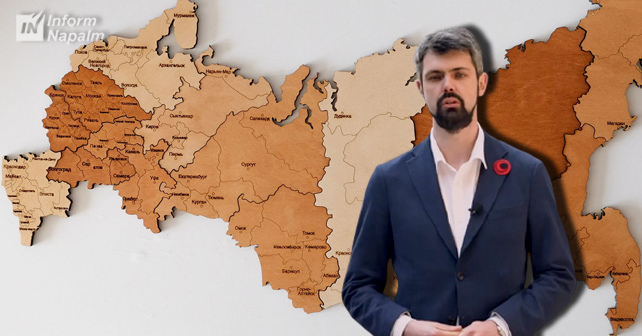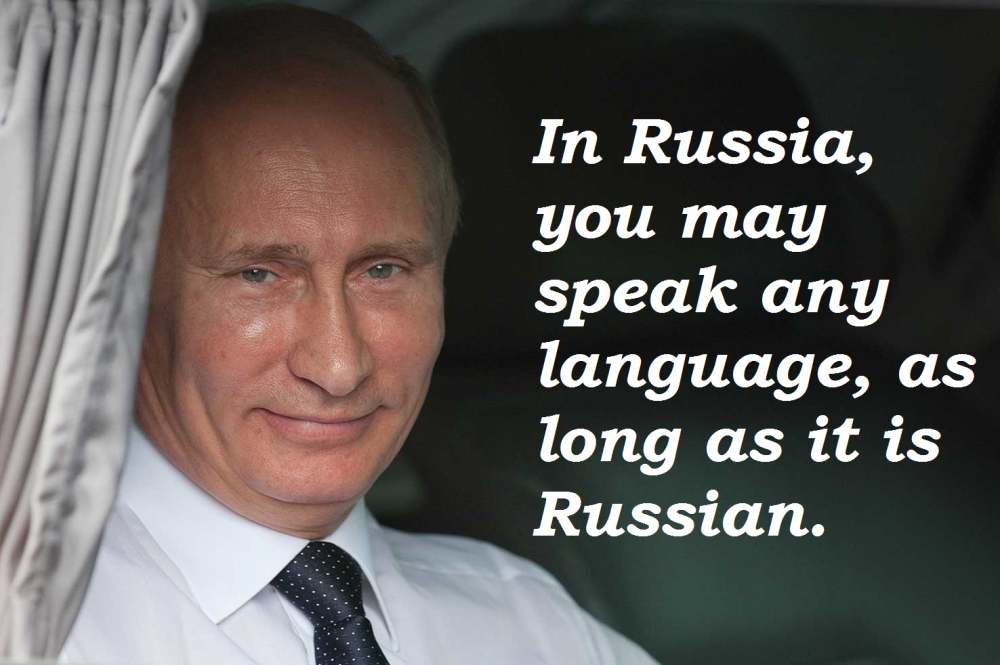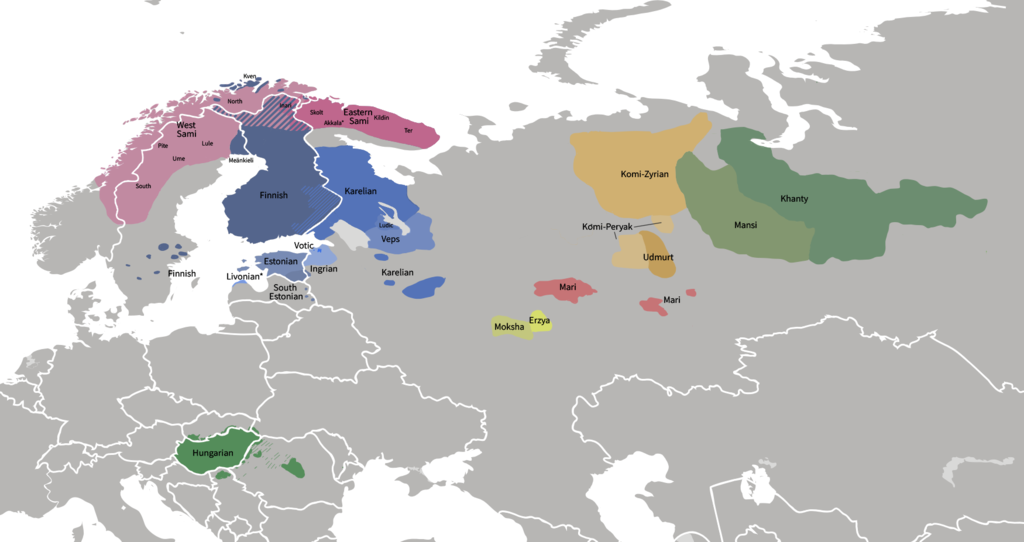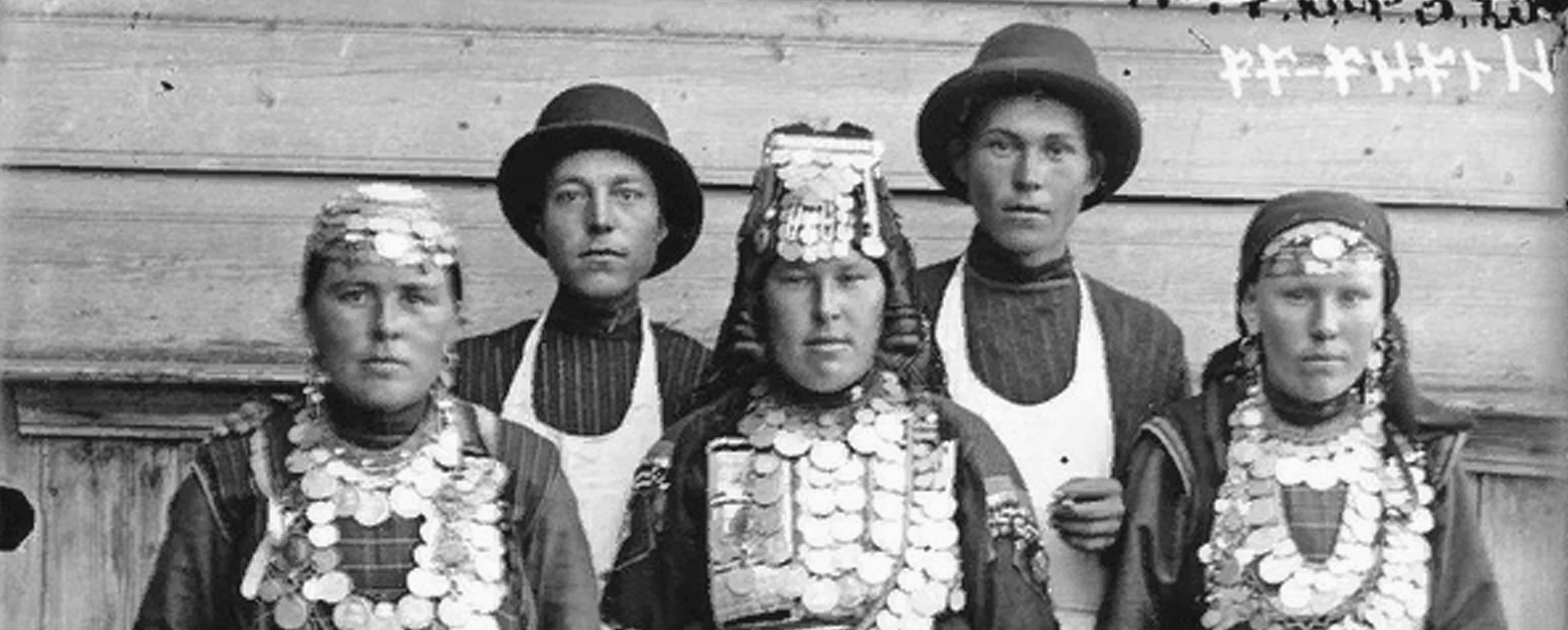Anton Drobovych, head of the Ukrainian Institute of National Remembrance, asymmetrically strikes back with a comprehensive analysis of how Moscow exterminates not only national movements but the very identities of its indigenous nations. The article was published in Ukrainian and Tatar, the language of Tatarstan, a Russian republic that also struggled for independence but was less successful than Ukraine. Here is a translation into English.
For decades, Vladimir Putin has been working diligently on his international image. He believes it is not enough to be the president of the largest country in the world. Today, he wants to lead the entire post-Soviet space, and presents himself as the unifier of lands and territories inhabited by a “scattered people”, i.e. the Russians.
Putin enjoys philosophizing over the inadequacy of neighbouring countries, counting other people’s money and GDP, and voicing concern about the national identity of peoples outside Russia. In other words, here is a foreign president giving unsolicited advice on how Ukraine and Ukrainians… and others should live.
On July 12, an article signed by Vladimir Putin “On the historical unity of Russians and Ukrainians” was published on the official website of the President of the Russian Federation. Without going into detail, this text can be described as a set of banal statements jumbled together with old, repeated anti-Ukrainian propaganda. It is worth noting that up till now, such statements have mostly been conveyed by Putin’s puppets, i.e. people with little social and political responsibility.
It is not clear why Putin’s article was also published in Ukrainian. The original Russian text demonstrates that Putin’s advisers do not know much about the history of Ukraine, while the Ukrainian version shows that no competent translators worked on the article. The first and only text in Ukrainian on the official website of the President of the Russian Federation testifies to only one thing - Ukrainophobia objectively prevents one from being a good specialist in Ukrainian history.
Ukraine and Tatarstan have a lot in common
Since the Russian president is so interested in national issues, I have decided to explore the topic and express my views on the situation of indigenous peoples in the Russian Federation, insomuch as we often hear Russian officials comparing “prosperous” Tatarstan as part of the Russian Federation with “poor and destitute” independent Ukraine.
I sincerely respect the Tatar people and wish them a better fate. I will not imitate Putin, claiming “the historical unity of Ukrainians and Tatars”.
However, Ukraine and Tatarstan really have a lot in common.
Tatars, like Ukrainians, have a long and glorious history with outstanding rulers, warriors and artists. For many years, Ukrainians and Tatars lived together in the Russian Empire, which suppressed their rights and independence. Like every empire, Russia used the carrot and stick method. Many Ukrainians and Tatars were exterminated, imprisoned, and exiled. Others were seduced by high ranks, fame and fortune. Of course, imperial benefits were lavishly provided in exchange for loyalty and renunciation of national identity.

Like Ukraine, Tatarstan had every reason to become a unified country, not an autonomous republic: in terms of surface area, population and level of social and political development. However, Stalin’s national policy included an essential element that Tatarstan did not have - a common border with the outside world. Ukraine had such a border. Consequently, after the collapse of the USSR, Kyiv was able to become the capital of an independent state, whereas Kazan, despite the desire of its people, failed.
From federation to empire: how Putin paved the way to Crimea land grab
In his article, Putin mentioned the wall that has appeared between Ukraine and Russia in recent years. Putin built that wall with his own hands when he launched an armed aggression against Crimea and eastern Ukraine. Unfortunately, Putin’s wall also separated Ukraine from the Tatars and other indigenous peoples of the Russian Federation.
We remember how and when it all started, namely the “mission” to Crimea led by the President of Tatarstan, Rustam Minnikhanov. We also remember the recent trips to the occupied territories in eastern Ukraine by Radiy Khabirov, the President of Bashkortostan. We saw motorized gunners from Khankala, Chechnya near Dzhankoi in Crimea, and tank regiments from Ulan-Ude, eastern Siberia at Debaltseve.
Moscow using non-Slavic soldiers in Donbas to prevent Russian-Ukrainian fraternization
We are closely following what is happening in occupied Crimea, so we know that Tatar units illegally took over the shipyard in Kerch. This is where the flagship of the Ukrainian fleet - the frigate Hetman Sahaidachny - was built in 1992.
Despite all these events, Ukrainians do not resent the indigenous peoples of Russia. Ukrainians are aware that the Tatars and other nations are hostages and instruments of Russia’s imperial policy… just as Ukrainians were once Moscow’s hostages and instruments during the Soviet intervention in Hungary (1956), Czechoslovakia (1968), and Afghanistan (1979-1989).
Last year, one of the leaders of the “DNR” terrorist group was appointed head of the administration of Elista, the capital of Kalmykia. He has no knowledge of this republic, the Kalmyk people and its problems. The appointment caused considerable resonance. We should all remember the words spoken in Ukrainian by Kalmyk activist Sanal Molotkov during a protest:
“You despise the Ukrainian language, and you destroyed the Ukrainian language in the Donbas. Did you come to Elista in Kalmykia to destroy the Kalmyk language? Do you respect the Kalmyk language?”
Let’s briefly review the problems in the Republic of Kalmykia.
In 2021, the Kalmyks held a national convention in Elista, accusing the Kremlin of covert ethnocide. Among other things, they pointed out that Kalmykia has the lowest water supply in all of Russia. Of course, Putin pretended not to hear the Kalmyks, because he himself uses the issue of water shortage in occupied Crimea to exert international pressure on Ukraine. For the Kremlin, any mention of water shortage in Kalmykia would be extremely inconvenient and unacceptable.
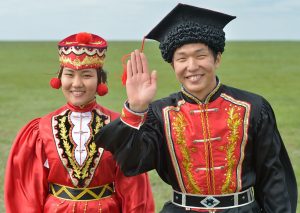
Tragic realities of modern indigenous nations in Russia
Today, Ukrainians are no longer an instrument of Russia -- a foreign empire. They are now responsible for their actions and can determine their own destiny. Fortunately, Ukraine has turned the page and left behind the crimes of the totalitarian regime, which Putin attempts to justify by calling them “our shared tragedies”.
However, for the indigenous nations of the Russian Federation, present-day realities are as tragic as half a century ago.
The President of the Russian Federation claims that due to the artificial division of Russians and Ukrainians, the population in Russia will be reduced by hundreds of thousands, or even millions. But, what is really happening in Putin’s Russia?
Censuses show a steady decline in the number of Ukrainians in the Russian Federation. And, Putin’s policy of de-Ukrainization is even harsher in occupied Crimea.
During a live TV phone-in, Putin compared Ukrainians and Russians to the Erzya and Moksha, indigenous peoples of the Russian Federation. He noted that although the Erzya language differs from the Moksha language more than Ukrainian from Russian, the Erzya and Moksha “value their unity” and consider themselves one people -- Mordovians.
The Moksha and Erzya languages, which are official languages in the Republic of Mordovia, are in a catastrophic state, even compared to Soviet times.
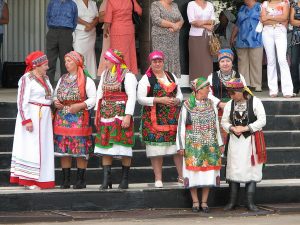
The situation with the Tatar language in Russia is also a matter of concern.
Between the 2002 and 2010 censuses alone, the number of Tatar speakers decreased by one million. The decline of indigenous languages in the Russian Federation is neither a natural process nor “our shared tragedy”. This is the direct result of Russification – Moscow’s targeted policy, which aims to destroy ethnic diversity and dismantle federalism in Russia.
In 2018, the State Duma amended the federal law “On Education”, according to which the national languages of the national republics of the Russian Federation ceased to be mandatory in secondary schools. In order to study the Erzya language, parents must write a note to the school principal.
However, instead of being able to exercise their right to be educated in their native tongue, students and parents often face administrative pressure, public humiliation and violence. For years, Erzya people have been demanding that the authorities open an Erzya gymnasium in the Mordovian capital, Saransk.
Millions of Tatar people do not have a single Tatar university. In his address to the Tatarstan parliament in 2018, President Rustam Minnikhanov declared that Tatars would finally get their own higher educational institute. However, Moscow is uncompromising and determined to curb the formation of a Tatar nation-state.
The Tatars were not even allowed to build a Tatar university with their own money in Kazan, the capital of Tatarstan. The Tatar language is artificially limited in schools. Such harsh realities force Tatar teachers to resign or teach other subjects. In March 2019, the Minister of Education of Tatarstan Rafis Burganov
announced that 1,200 Tatar language teachers are being retrained in other disciplines.
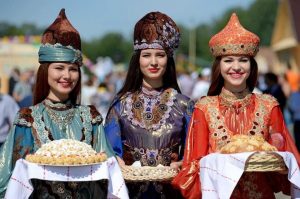
The Russian government even goes so far as to interfere in deeply personal affairs of the cultures of indigenous peoples. Contrary to the position taken by linguists from Tatarstan and Karelia, the Russian parliament responded by enacting a federal law banning Latin script in the autochthonous republics of the Russian Federation.
Both Putin and the representatives of the indigenous peoples of the Russian Federation are well aware that the disappearance of respective autochthonous languages will lead to the disappearance of their people. It is for this reason that these republics desperately oppose the language ban in schools and other public spheres. Despite police repression, people attend mass rallies, hold marches, single pickets, and campaign to collect signatures.
On September 10, 2019, Honoured Udmurt scholar Albert Razin committed an act of self-immolation in front of the Parliament of the Udmurt Republic. Before setting himself alight, he held up a poster with a quote from the Avar poet Rasul Gamzatov: “If my language disappears tomorrow, I am ready to die today.”
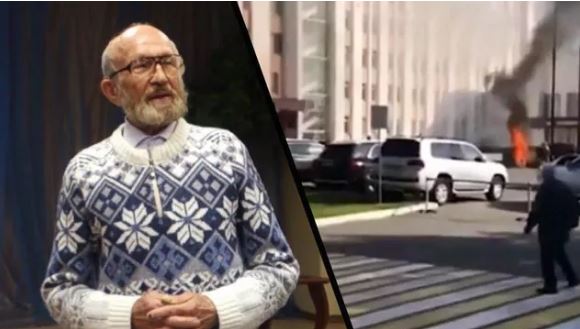
Indigenous nations in Ukraine and Russia
The Verkhovna Rada of Ukraine recently passed a law “On the indigenous peoples of Ukraine”. While Russian occupation authorities ban the activities of the Mejlis of the Crimean Tatar people, Ukraine enshrines the right of indigenous peoples to form their own representative bodies. Kyiv does not appoint the representatives of Crimean Tatars, nor does it say who should be chosen, what religious beliefs to follow or what alphabet to use.
I am proud of this law, but sorry at the same time. I am proud that Ukrainian parliamentarians finally adopted this law, but sorry that it was done so late.
Vladimir Putin has repeatedly commented on this law, wagging his finger indignantly at Ukraine. He is displeased that Russians were not recognized as indigenous people of Ukraine.
It is unbelievable that such claims can stem from such ignorance. After all, the law clearly explains that only stateless people can be considered indigenous. Neither Russians nor Ukrainians are indigenous peoples according to the prescribed norms, because they exercised their right to self-determination by creating their own states.
Moreover, under Russian law, Russians are not indigenous people and neither are Tatars. The legislation of the Russian Federation states that the concept of “indigenous minorities” can be assigned to ethnic communities that preserve the traditional way of life, farming, and crafts. Therefore, Putin’s comments are hypocritical, and his outrage is not at all sincere.
Unlike Russia, Ukraine is a unitary state. But, this does not mean that Ukrainian citizens of different ethnic backgrounds have no rights.
For example, about 150,000 citizens of Hungarian origin live in Ukraine. What rights do they enjoy? Hungarians have their own political parties and local government representatives; the Hungarian language is taught in educational institutions; there are independent mass media in Hungarian, and Hungarian associations and religious organizations function legally. In areas populated by Hungarians, you can see monuments not only to Hungarian writers and composers, but also to the rulers of Hungary.
Do the Finno-Ugric peoples of the Russian Federation have something similar? There are ten times more Tatars living in the Russian Federation than Hungarians in Ukraine, bur are Tatar political parties allowed? If a “forceful change of identity”, as Putin claims, is happening anywhere, it takes place in Russia, not Ukraine.
On paper, Russian legislation looks progressive and democratic. Russia is a federation and most national republics of the Russian Federation have their own constitutions, governments, parliaments and wide powers. In practice, these are lawless provinces. This was not always the case.
During those years, the Tatar people almost managed to fulfill their dream. On August 30, 1990, Tatarstan adopted a declaration of state sovereignty, and on October 24, 1991, issued a resolution “On the Act of State Independence of the Republic of Tatarstan”, the provisions of which were confirmed by referendum.
Tatarstan renounced the federal agreement with Russia. At that time, Tatarstan had its own constitution, adopted on the basis of the Declaration of State Sovereignty of the Republic of Tatarstan. The Declaration and the Constitution of the Republic of Tatarstan was supported by the majority of the population (61.4%) in a national referendum on March 21, 1992.
The first President of Tatarstan, Mintimer Shaimiev, was very proud of this agreement, which allowed Tatarstan “to preserve both the state and good relations with Moscow”. However, over the years, Moscow has greatly limited Tatarstan’s sovereignty and made more and more demands on the Tatar people.
The situation is even worse in other federal subjects of the Russian Federation. All the leaders of these republics were deprived of the presidential status they enjoyed in the 1990s. The Kremlin is systematically pursuing a policy of administrative consolidation by uniting the federation.
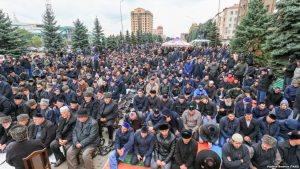
Putin considers the internal and external borders of the Russian Federation to be a destructive legacy inherited from the Bolsheviks. That is why he is waging wars of aggression against his neighbours and destroying Russian federalism. However, the borders of national entities in the Soviet Union were not just a whim. Kremlin authorities knew that they had to give the people at least a semblance of sovereignty in order to protect Russia from collapse. It seems that the Bolsheviks were more far-sighted than Putin. Fighting against federalism, Putin is leading his country back to the turbulent years of 1991.
Crackdown on indigenous political, civic, and religious activity in Russia
A clear example of the Kremlin’s attitude towards indigenous peoples was the legislative ban on the activities of national parties in 2001. This was done to prevent the development of political institutions in Tatarstan, Bashkortostan, Chuvashia, Buryatia, Yakutia and other republics. At that time, parties representing the interests of the citizens of Tatarstan, such as Ittifak (Unity), Өmet (Hope), and Vatan (Motherland), were forcibly liquidated. Later, the Kremlin went even further, banning public associations, i.e. influential public organizations, which Moscow could not bring under its control.
Even organizations that have never thought of separating the republics from the Russian Federation are being liquidated by Russian courts. Human rights defenders, journalists or civil activists are convicted “for extremist crimes”, which later becomes the reason for disbanding the organization, to which they belonged.
The Russian judicial system seems to think that “extremist crimes” do not include the seizure of administrative buildings, the formation of illegal armed groups or the proclamation of so-called “people’s republics”. No, as viewed by Russia’s judicial system, it is all about protecting one’s native language and basic human rights.
For example, last year in Bashkortostan, a court declared Bashkort
, the largest national non-governmental organization, an extremist group. Among the main accusations was a rally in defense of the Bashkir language held in September 2017. The prosecutor’s office described the event as “a provocation” and noted that the speeches “contained statements with linguistic and psychological signs of incitement to hatred and enmity”. Bashkort was also accused of “negative assessment of the legislature and the executive”.
In addition, activists fighting for the preservation of indigenous languages and cultures are under constant pressure from law enforcement agencies. Age, gender, political beliefs do not matter. Both Tatar youth from the Azatlyk public organization and pensioners from the Tatar public centre have been put on trial. Anyone who dares to talk about preserving interethnic diversity or about political change in Russia is brutally silenced. For example, Yakut shaman Aleksandr Gabyshev and Bashkir activist Ramil Saitov have been forced to undergo psychiatric examination and so-called “treatment”.
Religious Muslims are persecuted as extremists. Grounds for long-term imprisonment are the presence of religious literature, not weapons during a raid.
The Russian administration denies the right to certain religious needs of some Protestant groups and the faithful of the Orthodox Church of Ukraine. Followers of the Mari native religion in the Autonomous Republic of Mari El are victimized by the authorities. Officials and the Orthodox clergy have destroyed Mari shrines and places of worship, imposed prohibitions and restrictions on Mari rites, an essential part of the daily life of the Mari people.
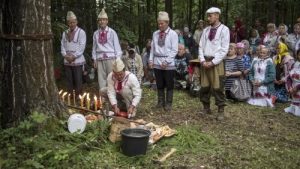
Moscow's economic exploitation of subjects of the Russian Federation
As to racism, xenophobia and anti-semitism, Russia is significantly ahead of Ukraine, although these social problems are more or less common in many countries. Russians try to hide these issues by using special rhetoric: they call their own values “patriotic”, others – “nationalist”, “fascist” and “Nazi”. Furthermore, Russian broadcasters make daily use of hate speech to stir up ethnic hatred and encourage violence towards ethnic minorities on Russian streets.
The Russian government’s attitude to federalism is also demonstrated by the economic relations between Moscow and the regions. The Kremlin’s strategy is to gradually increase allocations to the federal budget and increase the financial burden on local governments by implementing social and economic programs. Thus, even self-sufficient republics are gradually transformed into subsidized provinces. Increasing regional economic dependence on Moscow is one of Putin’s obvious goals. The very idea of national republics is discredited by the “inefficiency and mismanagement” of local elites.
A clear example of Russian colonialism is Tatarstan - one of the
richest and most developed subjects of the Russian Federation. This oil-rich republic is regularly milked by the central federal budget, but has no right to determine how long Tatar schoolchildren can study their native language. Even politicians and citizens loyal to Moscow often raise this topic - the economic exploitation of highly-developed republics.
In 2019, environmental problems in the Volga region were highlighted in major European media. Immediately, several European countries announced that they would suspend oil transit from Russia. The reason - contamination by organochlorine compounds, caused by destructive exploitation of oil deposits, as well as outdated and dangerous technologies. According to experts, this could lead to the decline of the entire oil industry in Tatarstan and Bashkortostan.

Sibay in Bashkortostan is another tragic example of outdated mining methods used by the Russian government. In November 2018, a crisis situation arose due to regular combustion emissions of copper ore from the abandoned quarries of a mining and processing plant. The quarry in Sibay is smoldering to this day, making Sibay one of the most dangerous places in all of Eurasia.
The ecological situation is also difficult in Udmurtia, where a chemical weapons destruction site is located in the town of Kambarka, which borders Bashkortostan. According to a decision of the federal government, a complex facility with a capacity of up to 50,000 tons per year is to be built for the treatment, recycling and disposal of hazard class 1 and 2 waste. Rosatom has been appointed as the official state customer.
The government’s decision has met with opposition from the public, who are trying to hold a local referendum to block the federal initiative. Environmental activists, representatives of Udmurt, Bashkir and Tatar national movements also oppose the construction of this plant. However, the Russian authorities propose only one solution - silence all protests and persecute all dissenters. Meanwhile, according to the National Medical Research Centre for Radiology, cancer rates have increased by 30% over the past 10 years in the Volga Federal District of the Russian Federation. Russia’s careless handling of radioactive materials also threatens neighbouring countries.
Even occupied Crimea, which Putin likes to showcase as a land of success and great acievements, has fallen victim to an environmental catastrophe - toxic emissions at the Krymsky Titan plant in August 2018.
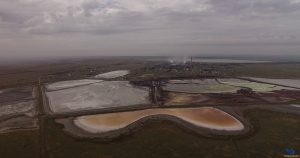
The realities of Tatarstan and other republics clearly demonstrate to Ukraine that, in the long run, any close relations with Russia lead to loss of independence, Russification, deprivation of human rights, economic exploitation, and social and environmental disasters. And, it is no consolation to hear such declarations as “issues and tragedies shared by us all”. Ukraine must remain distant from a government that constantly generates such problems.
I am truly sorry to have cited Tatarstan as an example that Ukraine should avoid at all costs. But, I firmly believe that the day will come when Tatarstan will decide its own destiny.
P.S. I would like to express my gratitude to Prometheus Security Environment Research Center for valuable advice during the preparation of the material.

Note: emphasis and subheadings in the column are ours - EP
Related:
- From federation to empire: how Putin paved the way to Crimea land grab
- Putin’s tale about unity of Russians and Ukrainians prompts Kazan scholar to speak about real unity of Turkic peoples
- “World will see a free Ichkeria and a free Tatarstan,” secretary of Ukraine’s National Security Council says
- Russian ‘federalism’ is to federalism what ‘military music is to music’
- The Arctic Ocean was once the Tatar Sea, Khakimov says
- Non-Russian nations of Russia to defend themselves from Putin because their elites won’t
- Free Idel-Ural Movement takes shape in Kyiv
- Indigenous leader accuses Russia of ethnocide at UN Forum
- Crimean Tatars in the crosshairs of Russia’s war on Muslims

